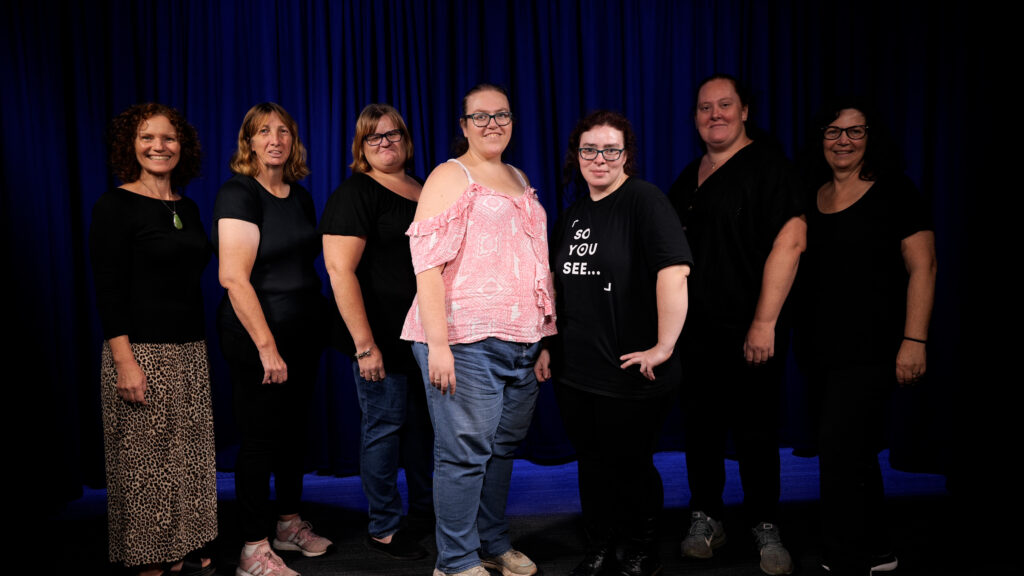Supporting the Woman, Supporting the Mother Study
The study was funded by the National Disability Research Partnership, hosted by the University of Melbourne and funded by the Department of Social Services. You can learn more about the National Disability Research Partnership here https://www.ndrp.org.au/
Co-research with experts with lived experience
We worked with six mothers with intellectual disability. They were paid co-researchers. A parent facilitator was employed to support the co-researchers to take part. She had lots of experience with coordinating projects and running groups for mothers with intellectual disability.

Susan Collings, lead investigator (far left) with five co-researchers (Ami Newland, co-researcher, not pictured) and Rachel Tozer, parent facilitator (far right).
We did different things to learn about what was happening in New South Wales.
We looked at what other studies have written – about what works and what does not work.
We created tip sheets to give practical ideas for parents and workers.
We worked with mothers with intellectual disability. We also talked to people who work in organisations that support and advocate for them.
Key Messages
-
NDIS and mainstream family support services do not work well together.
-
NDIS and family support services look at different needs for a parent.
-
This makes it harder for families to get the right support from all their services.
-
Services can work better for parents with intellectual disability and their children when they:
-
Ask people if they need help with parenting and if they have a disability.
-
Take a ‘family-centred’ approach. This means working with everyone in the family.
-
Talk to each other and to parents. This means working together as a team.
-
Support parents with parenting goals even if the service is funded by the NDIS.
-
Help parents to learn new skills as their child gets older.
-
Are longer-term because it takes time to get to know workers and to trust them.